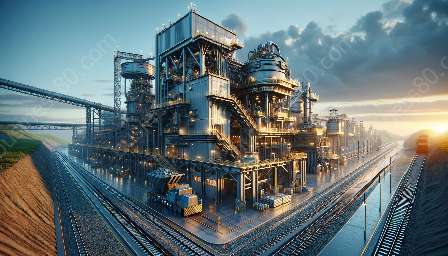Understanding exploration drilling is essential in the world of geology and the metals and mining industry. Exploration drilling plays a pivotal role in uncovering valuable resources and understanding the geological makeup of the Earth's crust. In this comprehensive guide, we delve into the intricacies of exploration drilling, exploring its techniques, significance, and relevance to geology and metals & mining.
The Significance of Exploration Drilling
Exploration drilling is a crucial process that aids in the identification and assessment of mineral resources beneath the Earth's surface. It allows geologists and mining companies to determine the presence, quality, and quantity of minerals such as gold, copper, and iron ore. This knowledge is essential for making informed decisions regarding the feasibility of mining operations and investments in the mining industry. By conducting exploration drilling, geologists and mining companies can locate and evaluate potential mining sites, contributing to the sustainability and growth of the metals and mining sector.
Understanding Geology Through Exploration Drilling
Exploration drilling provides valuable insights into the geological composition of the Earth's crust. Geologists use drilling data to interpret the stratigraphy, structure, and mineralization of rock formations, leading to a better understanding of geological processes and the distribution of valuable resources. Through exploration drilling, geologists can unravel the geological history and dynamics of a region, paving the way for enhanced geological mapping and mineral resource assessment.
The Techniques of Exploration Drilling
Exploration drilling employs various techniques to penetrate the Earth's crust and retrieve core samples for analysis. These techniques include diamond drilling, reverse circulation drilling, and rotary air blast drilling. Diamond drilling, in particular, is widely used for its ability to recover high-quality core samples, providing critical information about the composition and characteristics of rock formations. Furthermore, advanced technologies, such as downhole survey tools and remote sensing, contribute to the precision and efficiency of exploration drilling, enabling geologists and mining engineers to make accurate assessments of potential mining sites.
Exploration Drilling in the Context of Metals & Mining
Exploration drilling is indispensable for the metals and mining industry, serving as the foundation for resource exploration and reserve estimation. It facilitates the discovery of new mineral deposits and the expansion of existing mining operations, fostering sustainable resource development. Additionally, exploration drilling supports the evaluation of ore grades, mineral quality, and the economic viability of mining projects, contributing to the strategic planning and decision-making processes within the metals and mining sector.
The Future of Exploration Drilling
As the demand for crucial minerals continues to rise, the future of exploration drilling holds great promise. Advancements in drilling technology, data analytics, and environmental consciousness are shaping the evolution of exploration drilling practices. The integration of geophysical and geochemical surveys with drilling initiatives is enhancing the efficiency and accuracy of mineral exploration, fueling the discovery of new mineral reserves and revolutionizing the way we perceive and harness the Earth's geological resources.

